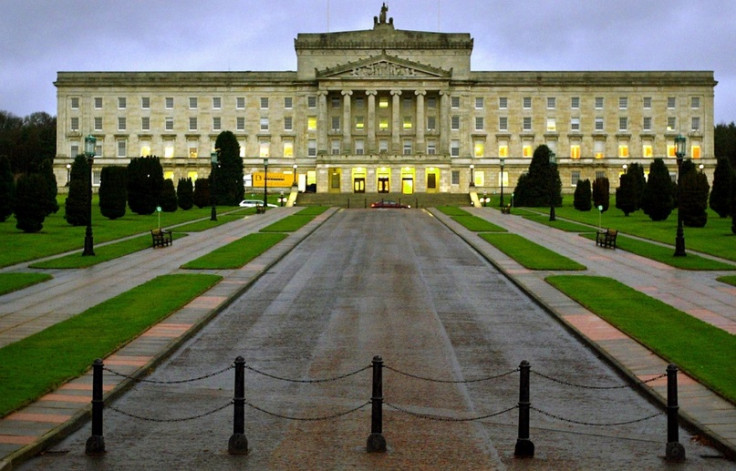Autumn Statement 2014: George Osborne confirms plans for Northern Ireland corporation tax devolution

Chancellor George Osborne has confirmed that he is willing to devolve corporation tax setting powers to the Northern Ireland Assembly if local officials can prove they are able to handle it.
Osborne said that the government will make a decision on this before the general election if it receives requisite assurances from Stormont.
The government is also looking to devolve business rate setting powers to the Welsh Assembly, which, Osborne said, would pave the way for "English votes for English laws".
The devolution of corporation tax would begin the process of allowing Stormont to reduce the rate from 21% to 12.5%, matching the rate in the Republic of Ireland.
In return, it's likely that the Chancellor will be able to cut the size of the block grant – the amount of public expenditure allocated by Westminster – to Northern Ireland, by around £450m. Stormont would be forced to make budget cuts in order to make up this deficit.
Since the powers would not be devolved until after the next General Election, Osborne is reported to be using it as a carrot to secure the backing of the Democratic Unionist Party MPs in the case of a hung parliament.
Supporters of the move say it will allow Northern Ireland to attract investment from around the world, on a scale similar to what's happened in the Republic. Google, Twitter and a host of other large multinationals have brought jobs to Ireland, attracted by the reduced business taxes.
The Scottish National Party (SNP) leader Nicola Sturgeon had previously voiced support for the devolution, despite the fact that corporation tax setting powers were not among those set out for Scotland by last week's Smith Commission. Sturgeon said that corporate tax devolution to Belfast would "blow apart any claims that it was not possible for Scotland, too".
However, others have questioned whether the Northern Irish economy is ready for such powers. Speaking on local radio, Bro McFerran, the CEO of Allstate NI insurance, said: "Our Northern Irish politicians need to show that they can deal and resolve the existing issues before they get into the realms of corporation tax.
"I think if we introduce something where we need much greater understanding and nuance and sophistication, I'm not sure those are words that we naturally associate with our Northern Irish politicians, and I think that is something that we have to be very careful about."
Tax experts have also questioned the logic of allowing Northern Ireland to compete with the Republic on tax, when it doesn't have the ability to offer other incentives and tax breaks which are available down south.
Tax economist Richard Murphy wrote: "The Republic's low tax offering is not just a low tax rate – it's also a low tax base. The tax collected by any state is the tax base multiplied by the tax rate – and because both are low in the Republic then many companies operate there and pay little or no tax at all. This is something Northern Ireland could not emulate unless it were, in effect, to cede from the UK for tax purposes."
Andrew Baker, a tax expert at Queen's University, Belfast, has said that the devolved power would "come with a considerable penalty".He explains that in order to make up the budget reduction from London, the Northern Irish economy would have to grow by a third.
"Viewed in this light, cutting corporation tax looks like a considerable gamble with the existing budget and public services. A more candid reading might invoke the spectre of self-harming," he said.
© Copyright IBTimes 2025. All rights reserved.






















